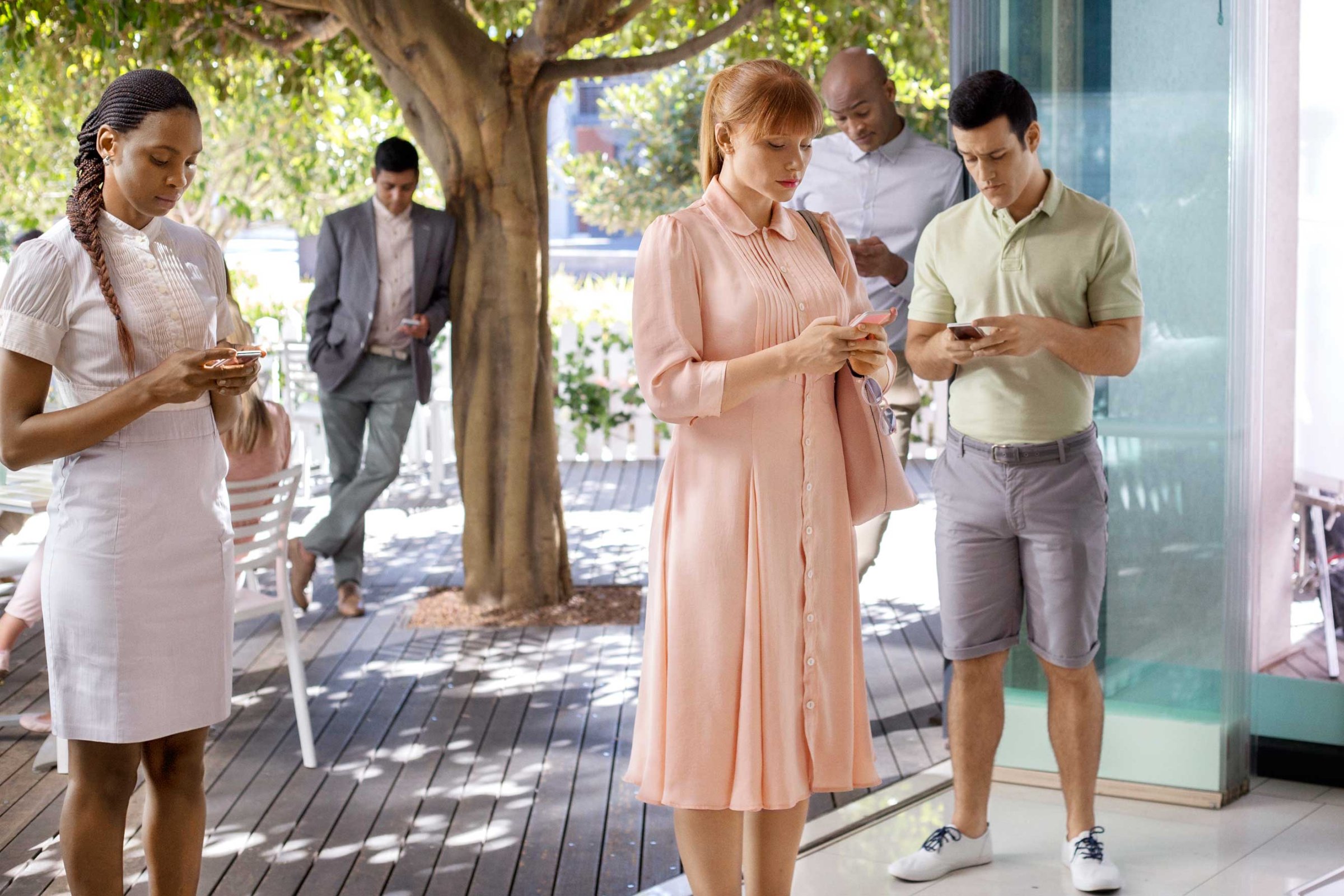
Lacie takes a careful bite of a cookie and spits it into her hand, then places the rest of it on the saucer next to her cup of coffee. She snaps a picture to post on social media, captioning it Heaven. She giggles as the likes rack up.
It’s a familiar scene to anyone who’s dined in a restaurant where patrons spend as much time documenting their food as they do eating it. But Lacie (Bryce Dallas Howard) is the subject of an episode of Black Mirror, a Twilight Zone for the digital age that Netflix premieres on Oct. 21, having added six installments to the original seven that aired in Britain. Each tells a self-contained story. In “Nosedive,” Lacie lives in a world where every picture, post and real-life interaction is ranked by online friends. The higher your ranking, the more perks you accrue: nicer cars, better apartments. But drop too low and you can’t enter your workplace, let alone a country club.
“I don’t think of it as the near future–I think of it as a parallel present,” says Michael Schur, who wrote “Nosedive” with Rashida Jones based on a concept by Black Mirror creator Charlie Brooker. “We’re basically already there. People are deriving a sense of value and meaning from social media.”
While 2001: A Space Odyssey and Blade Runner rendered worlds that appeared distant, Black Mirror–alongside the new HBO series Westworld (airing Sundays)–asserts that we are nearing dystopia. Westworld takes place in a Wild West theme park where visitors can shoot and seduce lifelike robots. The park’s mastermind (Anthony Hopkins) says guests prefer doing violence to the androids.
“Look at Grand Theft Auto and other open world games–violence is part of all of them. With virtual reality, the violence is ever more realistic and immersive,” says Jonathan Nolan, who with wife Lisa Joy co-wrote the series based on the 1973 Michael Crichton film. “We were interested in the moment after that, in which the simulations become indistinguishable from reality.” On Westworld, the robots grow self-aware and challenge the ethics of human actions.
Computers that are smarter than humans are fast approaching. People converse with Apple’s Siri, and this year a Google computer beat the world champion at a complex game called Go, a milestone that many computer scientists thought was a decade away. “We drive a Tesla,” says Joy. “We used to commute to set ourselves. By the time we were filming the finale, the car could do the commute for us.”
Technology is developing so quickly that ethical questions that sci-fi has always posed are increasingly becoming a part of our daily lives. Should robots have rights? Does social media connect or isolate? Do devices expose our worst selves? While we may not yet have answers, at least these shows compel us to confront and wrestle with these dilemmas together. Jones says that at a recent screening of “Nosedive” at the Toronto Film Festival, “There was a sense of collective shame. But also relief: Oh, someone else does that too.”
More Must-Reads from TIME
- Why Trump’s Message Worked on Latino Men
- What Trump’s Win Could Mean for Housing
- The 100 Must-Read Books of 2024
- Sleep Doctors Share the 1 Tip That’s Changed Their Lives
- Column: Let’s Bring Back Romance
- What It’s Like to Have Long COVID As a Kid
- FX’s Say Nothing Is the Must-Watch Political Thriller of 2024
- Merle Bombardieri Is Helping People Make the Baby Decision
Write to Eliana Dockterman at eliana.dockterman@time.com